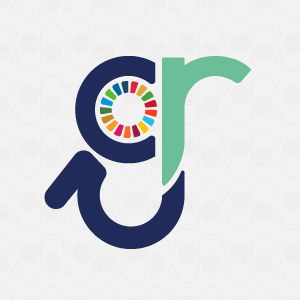Dialogue on Migration Governance in the Euro-Mediterranean Region (DiaMiGo)
The follow-up application of the DAAD-Project “DiaMiGo II – Dialogue on Migration Governance in the Euro-Mediterranean Region – 2025-2026” between the University of Cologne (UoC) and the American University in Cairo (AUC) has been successful.
Coordinated by Prof. Gerda Heck (Center for Migration and Refugees Studies at the AUC) and Dr. Karim Zafer (Global Responsibility Unit of the UoC), students and researchers—from PhD candidates to post-docs and professors in Cologne and Cairo—are working together to develop a more coherent understanding of global migration phenomena and their challenges. DiaMiGo brings several institutes, research centers and Community Based Organisations (CBOs) together. These include: The Global Responsibility Unit, The Global South Studies Center (GSSC), Department of Languages and Cultures of the Islamicate World, Department of Social and Cultural Anthropology, Integrationshaus e.V. from Cologne, and the Center for Migration and Refugees Studies, Department of Sociology, Egyptology and Anthropology, and Saint Andrew’s Refugee Services from Cairo, Egypt.
The UoC contributes perspectives from anthropology and cultures of the Islamicate World, while the AUC focuses on public policy, development studies, sociology, and migration governance. Through online lecture series, research academies (involving professors, junior researchers, students and practitioners) in Cologne and Cairo, teaching staff exchanges, and research stays in both cities, DiaMiGo I (2023-2024) has focused on actor- and object-centered perspectives as well as governance perspectives on migration infrastructures. This has included topics such as recent changes in legal infrastructures and border regimes that implement policies and regulate various forms of mobility in the Mediterranean, as well as the movement of objects, ideas, and more-than-human (MTH) entities. For more information, visit our website: www.diamigo.net
In the follow-up project DiaMiGo II, we aim to address this topic by comparing divergent concepts of “integration”, inclusion, and exclusion through a decolonizing lens. We will analyse these concepts in relation to how they are understood, controversially discussed, and practiced both within Germany (as a representative European country) and Egypt (as an example of a Global South country, where the majority of the world’s migrants and refugees reside).
While the integration of migrants and refugees has been widely discussed—and the related (public) discourse been criticized—in academic and policy circles in the Global North, it has not been a central focus of policy debates in the Global South, as these countries were not traditionally seen as destinations for newcomers to settle and establish new lives (FitzGerald & Arar 2019). However, despite the absence of formal integration policies in many Global South countries, migrants and refugees often find themselves in situations where they must develop their own strategies and navigate pathways for de facto “self-integration.” These integration models, based on “community social capital,” are typically informal and unrecognized in national and international policy debates (Ahmed 2024).
Given the lack of a universally accepted definition of integration and the absence of consensus on what successful integration looks like or how it can be measured (Phillimore, Morrice, & Strang 2024), a comparative analysis in the project DiaMiGo II will contribute to both migration studies and policy-making.
Click here to read more about DiaMiGo I (2023-2024)
Contact Person
Contact Person

Dr. Karim Zafer
Project Coordinator
Telefon +49 (0)160 978 39 549
E-Mail k.zafer(at)verw.uni-koeln.de
Webseite
Further Information
Global Responsibility
Global Responsibility combines internationalization with third mission in order to spread and transfer the knowledge generated by the University of Cologne in our local, regional and global networks and contribute to global change. Global Responsibility expresses thereby an attitude, which defines the role and the motivation of a university to act globally. It emphazises that all actions have a global impact of which every individual should be aware of. It is the task of a university to generate and spread knowledge in order to overcome old concepts and raise global awareness.
